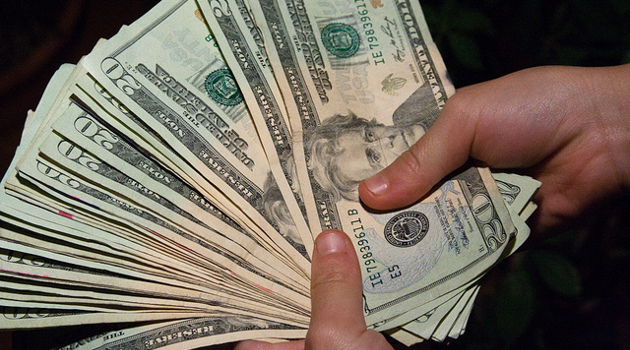In early June, I pontificated about the upside-down incentives that are created when government pays people more to be idle than they could get by working.
This is a real-world concern because the crowd in Washington earlier this year approved a $600-per-week bonus for people getting unemployment benefits.
 And that resulted in many people getting far more from benefits than they could get from employment. In some cases, even twice as much.
And that resulted in many people getting far more from benefits than they could get from employment. In some cases, even twice as much.
Anyhow, that bonus expired at the end of July, which has triggered a debate on whether to renew the policy.
In her Washington Post column, Catherine Rampell argues that super-charged benefits don’t discourage employment.
State benefits, on average, cover about 40 percent of the typical worker’s lost wages… Given the extraordinary economic crisis, federal lawmakers wanted to “top up” state benefits so that workers would get close to 100 percent of their lost wages. …So Congress passed a $600 weekly supplement because it seemed about the right amount to make the average worker whole. …a majority of unemployed workers received more in benefits than they earned in their most recent paychecks. …this prompted concerns that the benefits themselves might slow down the recovery, discouraging people from returning to work because being on the dole was too darn comfortable. …five…recent studies…concluded the…$600 federal supplement does not appear to have depressed job growth. …Yes, at some point, …fears about work disincentives may materialize, as the economy recovers and job opportunities become more plentiful. We’re nowhere near that point now.
The Wall Street Journal also opined on this topic, specifically debunking one of the studies cited by Ms. Rampell.
Most Americans understand intuitively that if people make more money by not working, fewer people will work. Then there are politicians and economists who want to pass out more money while claiming that disincentives to work are irrelevant. …a study by Yale economists…purportedly finds the $600 federal enhancement to jobless benefits hasn’t affected the incentive to work. …Yet the study excluded part-time workers and those who hadn’t been working at a business in their sample last year. In other words, the study focused on workers with more loyalty to their employers. …Notably, states with more generous unemployment benefits for low-wage workers generally have had larger declines in labor-force participation. In Kentucky the lowest-paid 25% of unemployed workers on average have made 216% of what they did working. The state’s labor-force participation has declined 4.8 percentage points since February. …If you subsidize not working, you get less work.
In this Rampell vs. WSJ debate, I’m more sympathetic to the latter.
When the big fight over extended unemployment benefits during the Obama years was finally resolved, it showed that people are significantly more likely to find jobs when they’re no longer getting paid for not working.
This doesn’t mean that it will be easy (especially in an environment where there is still uncertainty about the coronavirus), or that we shouldn’t have sympathy for people facing pressure to find jobs after losing their previous positions.
But if we want prosperity and rising living standards, there’s really no alternative.
I’ll close with another excerpt from Ms. Rampell’s column. She cites an economist who found that some people went back to work even though they received less money than they were getting from the government.
Evercore ISI economist, Ernie Tedeschi, …observed that in June, around 70 percent of unemployment recipients who resumed working had been receiving more from benefits than their prior wage — yet nonetheless returned to work.
This is largely good news since it shows that America still enjoys a high degree of societal capital (work ethic, desire to earn rather than get handouts, etc).
But this underscores why we shouldn’t erode that valuable form of capital by making people feel like chumps for doing the right thing (a point I emphasized earlier this year when criticizing Elizabeth Warren’s dependency agenda).
 Otherwise we wind up with the real-world version of this satirical Wizard-of-Id cartoon.
Otherwise we wind up with the real-world version of this satirical Wizard-of-Id cartoon.
P.S. Speaking of satire, Nancy Pelosi actually argued that paying people not to work was a form of stimulus.
P.P.S. Here are a couple of anecdotes, one from Ohio and one from Michigan, about the perverse impact of excessive unemployment benefits during the last downturn.
P.P.P.S. If you want more academic literature on the relationship between government benefits and joblessness, click here and here.
P.P.P.P.S. Last but not least, prominent economists on the left (including Paul Krugman) actually agree the unemployment benefits encourage joblessness.
———
Image credit: Steven Depolo | CC BY 2.0.

